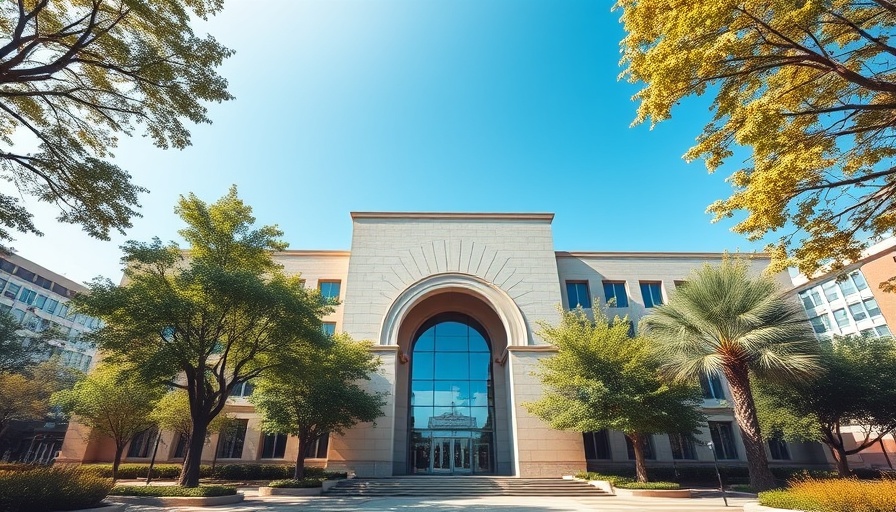
The Electric Truck Dilemma: Community Concerns Surface
In recent discussions about green technology, a major focal point is the future of electric trucks and their infrastructure. A significant case has emerged from National City, where the Port of San Diego, in collaboration with Skycharger, presented an ambitious plan for an electric truck charging station. With hopes pinned on sustainable transport, the proposals were met with skepticism as residents grappled with the potential downsides of the project.
A Proposal for Charging Infrastructure
The envisioned charging station, a 4.8-acre facility envisioned to serve 70 charging berths for various truck sizes, promises to be outfitted with solar panels and other environmentally friendly features. Supporters tout the facility as crucial for addressing a major environmental concern from truck emissions affecting nearby communities. National City aims for a transition to zero-emission operations by 2030, a laudable target in a world increasingly aware of the dire climate crisis.
Residents' Voices and Concerns
However, at a May 1 meeting held at the National City Aquatic Center, many community members voiced their apprehensions. A mix of skepticism and outright opposition echoed through the room, with residents questioning everything from potential toxic battery fires to disruptions caused by increased truck traffic. One local leader expressed frustration, indicating that these concerns needed thorough examination before proceeding. The fear of becoming “guinea pigs” for untested technology is palpable among those affected.
Environmental Promises vs. Community Reality
Peter Eichar, climate program manager for the port, insists that this project will provide necessary environmental benefits. Nevertheless, skepticism persists. A National City resident articulated doubts about the promised reductions in pollution, reflecting concerns that the benefits of going electric may not justify the risks posed to existing truck operators who rely on traditional diesel models.
Economic Implications: The Human Element
As National City considers its future relations with the trucking industry, the socioeconomic realities cannot be overlooked. The swift transition to electric trucks and the subsequent infrastructure displacing conventional trucking operations poses risks to local truckers who may find themselves edged out of the market. A stronger focus on supporting existing workers alongside technological advancement may prove vital for a seamless transition.
The Path Forward: Open Discussions Needed
As the environmental review looms, stakeholders are encouraged to keep the community engaged in the decision-making process. Residents have a right to be involved and to ensure their concerns are thoroughly addressed. Community forums should be established where both technical and emotional aspects of the project can be openly discussed—allowing all voices to be heard.
Looking Toward a Balanced Future
The tussle between embracing innovative transportation technology and protecting the livelihood of current workers reflects a broader challenge many communities face. The potential success of this electric truck station initiative in National City will depend significantly on how well the voices of the residents can coexist with the climate goals of local authorities.
As this conversation develops, it's critical for the broader San Diego community to stay informed and active in discussions regarding sustainable innovations and their impacts on local industries. Advocating for a balanced approach that respects community concerns while pursuing environmental progress may result in a healthier, more equitable future for all.
 Add Row
Add Row  Add
Add 




 Add Row
Add Row  Add
Add 

Write A Comment